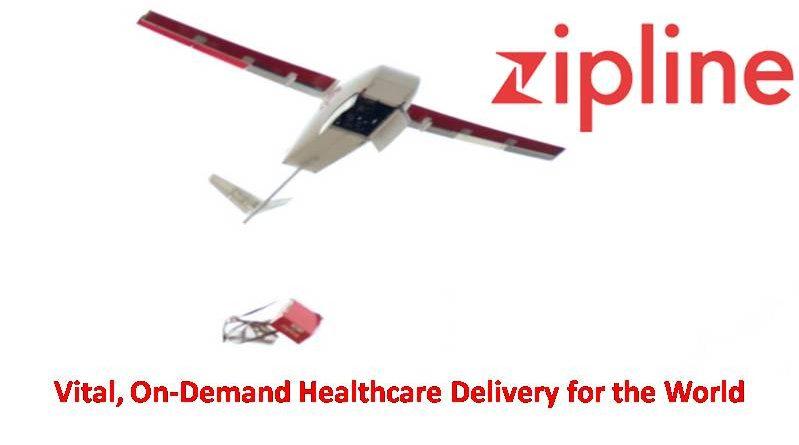USTDA and Zipline partner to expand healthcare access in Nigeria and Ghana through drones
The U.S. Trade and Development Agency (USTDA) announced it has awarded a grant to Fly Zipline Ghana, for a feasibility study to expand healthcare access in Ghana and Nigeria using unmanned aerial vehicles. The study will facilitate Zipline’s goal of expanding its logistics services to make healthcare more accessible and affordable.
Enoh T. Ebong, Director, USTDA: ”Increasing access to healthcare is critical for West Africa. Our partnership with Zipline demonstrates the role that non-traditional models of healthcare access can play in addressing this need. USTDA’s support for this project reflects the wholistic approach that we are taking toward developing healthcare infrastructure and the important role that private sector companies can play in offering meaningful solutions.”
Virginia E. Palmer, U.S. Ambassador to the Republic of Ghana: ”The United States is committed to a strong partnership with Ghana that will grow our economies while improving and even saving peoples’ lives. This project serves as an example of our whole-of-government approach, where USTDA worked closely with the U.S. Departments of Commerce and State, and USAID, to reach today’s important milestone with Zipline.”
USTDA’s feasibility study will allow Zipline to assess the viability of expanding its healthcare logistics services into new geographic areas and developing new business models to build on its existing delivery systems. In addition to healthcare sector benefits, Zipline’s project is anticipated to increase access to e-commerce, postal, and agricultural products and services in hard-to-reach areas, helping to stimulate local economies and reducing costs and time to access goods and services.
Daniel Marfo, Senior Vice President, Zipline: ”Zipline has transformed the logistics and medical systems in the countries where we operate, helped save lives, and reduced negative environmental impact on the planet. This grant from USTDA will enable a feasibility study to assess the impact of expanding Zipline’s operations in Nigeria and Ghana so that we can help more communities and healthcare systems have access to critical items when they need it.”
This project advances a primary pillar of the Biden-Harris Administration’s Partnership for Global Infrastructure and Investment, which aims to strengthen global health security through investments in patient-centered health services. The project also supports the U.S. government’s Prosper Africa initiative to substantially increase two-way trade and investment between the U.S. and Africa.




